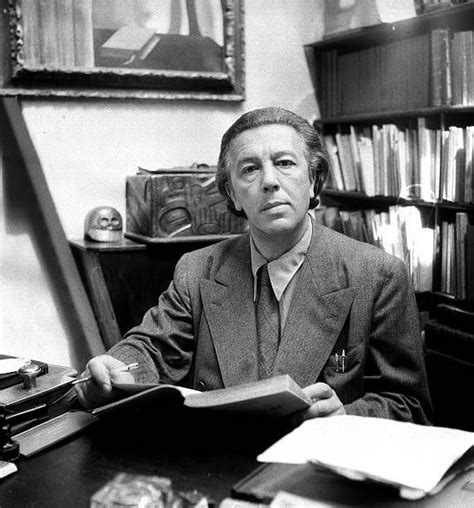A Quote by Aristotle
If there is some end of the things we do, which we desire for its own sake, clearly this must be the good. Will not knowledge of it, then, have a great influence on life? Shall we not, like archers who have a mark to aim at, be more likely to hit upon what we should? If so, we must try, in outline at least, to determine what it is.
Related Quotes
If, then, there is some end of the things we do, which we desire for its own sake (everything else being desired for the sake of this), and if we do not choose everything for the sake of something else (for at that rate the process would go on to infinity, so that our desire would be empty and vain), clearly this must be the good and the chief good.
A wise man ought always to follow the paths beaten by great men, and to imitate those who have been supreme, so that if his ability does not equal theirs, at least it will savor of it. Let him act like the clever archers who, designing to hit the mark which yet appears too far distant, and knowing the limits to which the strength of their bow attains, take aim much higher than the mark, not to reach by their strength or arrow to so great a height, but to be able with the aid of so high an aim to hit the mark they wish to reach.
Do not turn the power of your mind upon others, but turn it upon yourself in such a way that it will make you stronger, more positive, more capable, and more efficient, and as you develop in this manner, success must come of itself. There is only one way by which you can influence others legitimately, and that is through the giving of instruction, but in that case, there is no desire to influence. You desire simply to impart knowledge and information, and you exercise a most desirable influence without desiring to do so.
Children who wish to become good and great men or good and noble women, should try to know well all the people whom they meet. Thus they will find that there is no one who has not much of good; and when they see some great folly, or some meanness, or some cowardice, or some fault or weakness in another person, they should examine themselves carefully. Then they will see that, perhaps, they too have some of the same fault in themselves - although perhaps it does not come out in the same way - and then they must try to conquer that fault.
A soldier surrounded by enemies, if he is to cut his way out, needs to combine a strong desire for living with a strange carelessness about dying. He must not merely cling to life, for then he will be a coward, and will not escape. He must not merely wait for death, for then he will be a suicide, and will not escape. He must seek his life in a spirit of furious indifference to it; he must desire life like water and yet drink death like wine.
Of actions some aim at what is necessary and useful, and some at what is honorable. And the preference given to one or the other class of actions must necessarily be like the preference given to one or other part of the soul and its actions over the other; there must be war for the sake of peace, business for the sake of leisure, things useful and necessary for the sake of things honorable.
There are branches of learning and education which we must study merely with a view to leisure spent in intellectual activity, and these are to be valued for their own sake; whereas those kinds of knowledge which are useful in business are to be deemed necessary, and exist for the sake of other things.
Given that we desire long life, should we not take eternal life into account? If we long for a kingdom which, however enduring, has an end, and glory and joy which, great as they are, will fade, and wealth that will perish with this present life, and we labour for the sake of such things; ought we not to seek the kingdom, glory, joy and riches which, as well as being all-surpassing, are unfading and endless, and ought we not to endure a little constraint in order to inherit it?
The first thing the reasonable man must do is to be content with a very little knowledge and a very great deal of ignorance. The second thing he must do is to make the utmost possible use of the knowledge he has and not waste his energy crying for the moon. The third thing he must do is try and see clearly where his knowledge ends and his ignorance begins.
The habit some writers indulge in of perpetual quotation is one it behooves lovers of good literature to protest against, for it is an insidious habit which in the end must cloud the stream of thought, or at least check spontaneity. If it be true that le style c'est l homme, what is likely to happen if l homme is for ever eking out his own personality with that of some other individual?
Vocation does not come from willfulness. It comes from listening. I must listen to my life and try to understand what it is truly about-quite apart from what I would like it to be about-or my life will never represent anything real in the world, no matter how earnest my intentions…..Before I can tell my life what I want to do with it, I must listen to my life telling me who I am. I must listen for the truths and values at the heart of my own identity, not the standards by which I must live-but the standards by which I cannot help but live if I am living my own life.
You must remember always to give, of everything you have. You must give foolishly even. You must be extravagant. You must give to all who come into your life. Then nothing and no one shall have power to cheat you of anything, for if you give to a thief, he cannot steal from you, and he himself is then no longer a thief. And the more you give, the more you will have to give.
Cookery is a wholly unselfish art: as 'art for art's sake' it is unthinkable. A man may sing in his bath every morning without the least encouragement, but no cook can cook just for his or her own sake in a like manner. All good cooks, like all great artists, must have an audience worth cooking for.






































